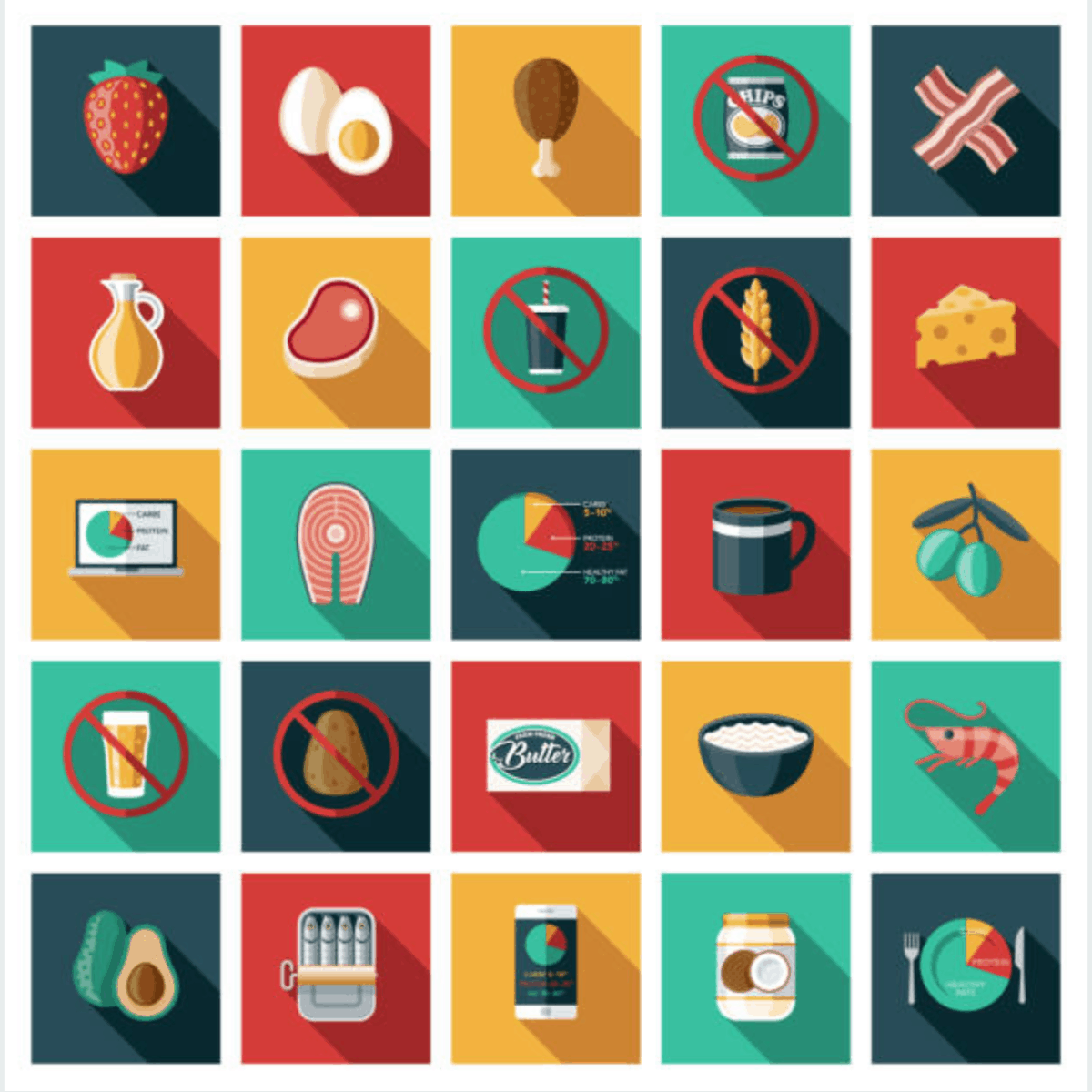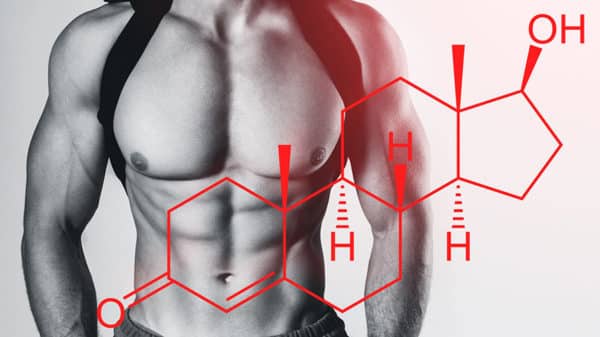Do you really know the ketogenic diet?
You've probably already heard of the ketogenic diet, also known as the keto diet. But do you really know how it is practiced and implemented? Do you know its possible benefits or dangers for your health? Don't worry, we'll explain it all to you!
Definition: what is this plan?
The ketogenic diet is derived from the low-carb diet, invented by Dr. Russel Wilder in 1921. His goal was to treat people suffering from epilepsy as a priority. Indeed, he had observed that their brain deprived of sugar was less likely to trigger a crisis. This is a "reflex" set up by the human body when it is deprived of glucose, which then transforms fats into energy. In this case, we speak of ketosis. This metabolic state transforms triglycerides into glycerol and fatty acids, which the liver will then use to create the ketone body through a process called ketogenesis.
Some even believe that the origins of the ketogenic diet are much older. For example, the ketogenic diet is traditional among many peoples such as the Inuit, the Maasai, and many Native American tribes.
There are three main types of ketogenic diets:
- The classic version: it consists of a very low carbohydrate intake, a lot of proteins and fats.
- The cyclic version: the cyclic ketogenic diet is when there are periods of carbohydrate refills.
- The targeted version: primarily intended for athletes, it allows carbohydrate intake before and after training sessions only.
But here's the thing, when we talk about a real ketogenic diet, the body has to be in a state of ketosis so the classic version is the right one. Which is very complicated to maintain.
The main principles of this ketogenic diet:
You will have already understood that the principle of this diet consists above all in reducing the consumption of carbohydrates while largely favouring lipids and some proteins. These changes are obviously synonymous with a radical transformation of food. The fat intake is increased for two reasons. First of all, it avoids muscle wasting. Indeed, if the body were to draw on proteins, this would lead to a catabolic effect with a high risk of muscle atrophy afterwards. Secondly, it favours the appearance of the ketone metabolic state.
Generally speaking, the human body enters a ketone state on the fourth day when less than 30 grams of sugars are consumed daily. This metabolic change leads to the use of ketone bodies created from fatty acids. Many scientific studies have concluded that this is a much more stable source of energy than glucose.
This state is probably the most delicate phase to support. In fact, in addition to a strong feeling of hunger, it is accompanied by symptoms such as excessive fatigue, coughing, a stuffy nose, headaches, nausea and even irritability. Some people call this period the ketogenic flu because of the similarity of the symptoms with this disease. It is a normal reaction of the human body to switch from one mode of energy production to another.
The food bases
Permitted foods
The ketogenic diet is certainly a no-carb dietHowever, it allows you to frequently mix gustatory pleasures. Don't think that the ketogenic diet and a festive menu are totally incompatible! Thus, among the low-carbohydrate foods, it is quite possible to consume :
- Meat: red or white, but also ham, sausages and bacon
- Fatty fish such as salmon, trout, tuna, mackerel but also seafood
- Butter and cream
- Unsweetened tea or coffee
- Low carbohydrate vegetables: mostly green vegetables but also tomatoes, onions and peppers
- Eggs (preferably from free-range hens)
- Cheeses: blue cheese, cheddar, feta, mozzarella, gruyere and even whole cottage cheese.
- Vegetable oils: especially extra virgin olive oil or coconut oil and fish oil
- Pleasure foods like dark chocolate and cocoa powder
- Condiments to season your dishes: salt, pepper, mustard, herbs and healthy spices.
- Drink plenty of water every day
Foods for the ketogenic diet to be consumed in moderation
Fruit is naturally rich in sugar (on average 12 grams of sugar in a 100 gram portion of fruit). Choose red berries (strawberry, blueberry, raspberry or redcurrant) but limit yourself to 50 grams per day.
Also beware of yoghurts that contain lactose (a carbohydrate from milk). Opt for Greek-style yoghurt, which contains more fat than traditional yoghurt.
Foods to ban
Naturally, it is important to exclude all carbohydrate-rich foods from the diet:
- Sweetened drinks such as soda, fruit juice or smoothies
- Fruit: only a small portion of berries can be tolerated
- Root and tuber vegetables such as potatoes or carrots
- Pulses (peas, beans, lentils etc...)
- Cereals and starches: including wheat, rice and pasta
- Ketchup
- Products containing artificial sweeteners
- Coffee or tea containing sugar
- The cakes
- Sugar-free diet foods because they frequently contain alcoholic sugar.
- Alcoholic beverages
Benefits of the Ketogenic Diet
Ketogenic diet weight loss
Numerous feedbacks as well as several scientific studies have demonstrated the reality of the action of this diet on weight loss. In addition to feeling better physically, this loss also reduces the risk factors for diseases related to overweight or obesity.
Other studies compare the ketogenic diet with other forms of dieting. They show that the ketogenic diet achieves better weight loss results than a low-fat diet, but also that it maintains satiety longer than a fat-restricted diet. It should also be noted that this diet accelerates weight loss in obese people more quickly than a low-fat diet.
Finally, it is undeniable that increasing protein consumption as part of such a diet provides real benefits to the body.
Its action on chronic diseases
This dietary control solution is recommended by many doctors for patients suffering from diseases such as epilepsy, type 2 diabetes, Alzheimer's or even multiple sclerosis. Indeed, they have observed a reduction in symptoms or side effects, but above all it is an effective and life-saving solution for all patients who do not tolerate or do not respond to conventional drug treatments.
Other benefits have been noted on patients suffering from cancer, one of the main causes of death in our modern societies. The impacts would be at the level of our cells. Indeed, it has been observed that a cancerous cell tends to feed more massively on sugar than a healthy cell which favours food in the form of fat. With the implementation of this low-carbohydrate, high-fat diet, the latter will therefore be better nourished than a sick cell. As a result, the sick person regains energy and a better physical condition thanks to the "boost effect" of the healthy cells. In most cases, an improvement of their blood balance is also noted. Be careful, however, this diet is in no way a way to cure cancer...
Essential food supplements for the ketogenic diet
Probiotics:
On a ketogenic diet, in order to keep our carbohydrate intake to a minimum, we tend to limit the consumption of vegetables but also yoghurts or fermented products (which bring good bacteria to our digestive system). This leads to a lack of probiotics (micro-organisms that contribute to a healthy digestive process and a stronger immune system) in the diet. 3 capsules a day of Probiotics will be enough to stay in perfect health. Here is the probiotic I recommend: PROBIOTIC
Sodium:
When you feel tired and depleted of energy on a ketogenic diet, it can usually be due to a lack of sodium. Sodium is vital to the operation This is not only to maintain normal muscle and nervous system function, but also to keep the body's fluids in balance, and during a ketogenic diet the body tends to excrete many more electrolytes than normal. Adding about 8 to 10 grams of salt to your diet by salting your dishes more than usual will be enough to make up for any imbalances.
Potassium:
Another mineral that can also cause unusual fatigue on a ketogenic diet is potassium. This mineral is important in the prevention of blood pressure, osteoporosis and also kidney stones. To compensate for this loss, eat more avocado, beef, spinach and take a potassium supplement of 1 to 2 g per day.
Magnesium :
Many of us are lacking in magnesium mainly due to the fact that today's food is less rich in minerals, especially because of soil treatment. Why do we need magnesium? Because it can help reduce inflammation, regulate blood pressure and play a role in stress. 500 mg of magnesium as a supplement will help you fill this gap. You will find here the magnesium that I use: MAGNESIUM
Calcium:
While calcium is often associated with bone mineral health, it has many more functions in the body, including muscle contraction and relaxation. It also has an important role in energy metabolism and the process of cell division. Calcium can be found in fish, broccoli, almond or cashew milk. On a ketogenic diet, you may need supplements to cover your need for Calcium of the order of 1g per day.
Vitamin D:
Vitamin D helps in the absorption of other minerals such as calcium and magnesium. It is also essential for maintaining strength, testosterone levels, bone density, cardiovascular health and the immune system. You can get enough vitamin D if you get enough sunlight every day, but depending on where you live this may not be possible and prolonged exposure can lead to skin cancer. Vitamin D is found in some oily fish, milk, butter, veal or poultry liver. If you are unable to meet your daily requirement of vitamin D of your diet, you can take 400 mg per day as a supplement.
MCT oils:
MCT (medium chain triglyceride) oils are a type of fat that the body can use as an energy source instead of storing it. MCTs are believed to help the body produce more ketones, which are needed to enter a state of ketosis and therefore burn more fat. They are found in coconut oil, butter, cheese and yoghurt but the best way to get a concentrated dose of MCT while staying within these calories and macros is to supplement with MCT in the form of oil or capsules.
Omega 3 :
Although most ketogenic diets may be rich in Omega 3, they are also very rich in Omega 6, which can cause the ratio of Omega 3 to Omega 6 to be 1:1 and therefore cause excessive inflammation. Omega 3 not only helps to fight inflammation in the body, but also stress and lower triglyceride levels in the blood. They are found in particular in fatty fish (salmon, sardines), mackerel, flaxseed oil, rapeseed oil and walnut oil. According to numerous studies, a supplementation in Omega 3 of the orde of 3 g per day would allow a decrease of triglyceride level of 38%. All Omega 3 supplements are not equal, please choose a quality supplement with a good concentration of EPA / DHA like this one: Omega 3 EPA plus.
Side effects and dangers of the ketogenic diet
This diet is not accessible to everyone. People with type 1 diabetes, liver failure, respiratory problems or metabolic abnormalities in the oxidation of fatty acids are excluded. You will have understood that it is absolutely necessary to consult your doctor before starting this type of diet.
Some side effects may occur with the ketogenic diet. Indeed, it sometimes leads to dehydration or a lack of minerals. This can lead to cramps, constipation or physical fatigue. These effects occur especially during the ketogenic flu phase.
By choosing certain foods, you can limit these undesirable effects. For example, a diet rich in vegetables will have a positive effect on cramps and constipation thanks to their micronutrients. As far as physical fatigue is concerned, simply give your body time to adapt to this new metabolism. You will gradually regain all your strength and stamina from before the diet.
Ketogenic diet: recommended for athletes?
The ketogenic diet for athletes is by no means forbidden. On the contrary, in some cases, it is even encouraged if it is well controlled. If necessary, you can even opt for a specific diet that includes carbohydrate intake only after the training session. This way you will benefit from the advantages of fasting and at the same time you will promote your muscle recovery.
Ketogenic diet and bodybuilding
The ketogenic diet and weight gain in bodybuilding do not mix well. Indeed, if this diet optimizes fat loss, it is delicate to promote mass gain without carbohydrates. On the other hand, the ketogenic diet can be particularly effective in the framework of a dryness or for the bodybuilders who prepare a competition.
Some tips before starting this diet
Let's repeat it once again: you must make an appointment with your doctor before starting this diet. Once you have his approval, you will need to put a strategy in place. It consists in removing from his cupboard all the foods that will be forbidden to you from now on (refer to the list below to help you). Then, of course, after that, you'll need to refill your cupboard with approved products. Be sure to read the labels on every product you plan to buy! Avoid products with too many ingredients, especially those food colorings and preservatives rich in nitrites. You will easily identify them because their names all start with the letter "E" followed by several numbers.
If your current eating habits are rather unbalanced or borderline junk food, do not switch to the ketogenic diet immediately. Indeed, it would be counterproductive and even dangerous for your body to switch from a high carbohydrate diet to such a restrictive diet. It may have a very difficult time getting off its usual food, much like a drug addict would have a difficult time getting off the drug. In this case, the idea is to gradually replace sugary drinks with water and high carbohydrate foods with higher doses of vegetables and fruit. Remember that this transition must be done gently! Even if you feel like you are losing time at the moment, you can be sure that this will guarantee your future success.
The most delicate phase in such a diet remains, without a doubt, the keto flu that we have already mentioned. In order to promote it but also to make it more bearable, you can combine herbs, foods and certain food supplements with the ketogenic diet. For example, cider vinegar, cinnamon, lemon juice.
Also read articles:
What exactly is the young intermittent?
Everything you need to know about peanut butter for athletes










